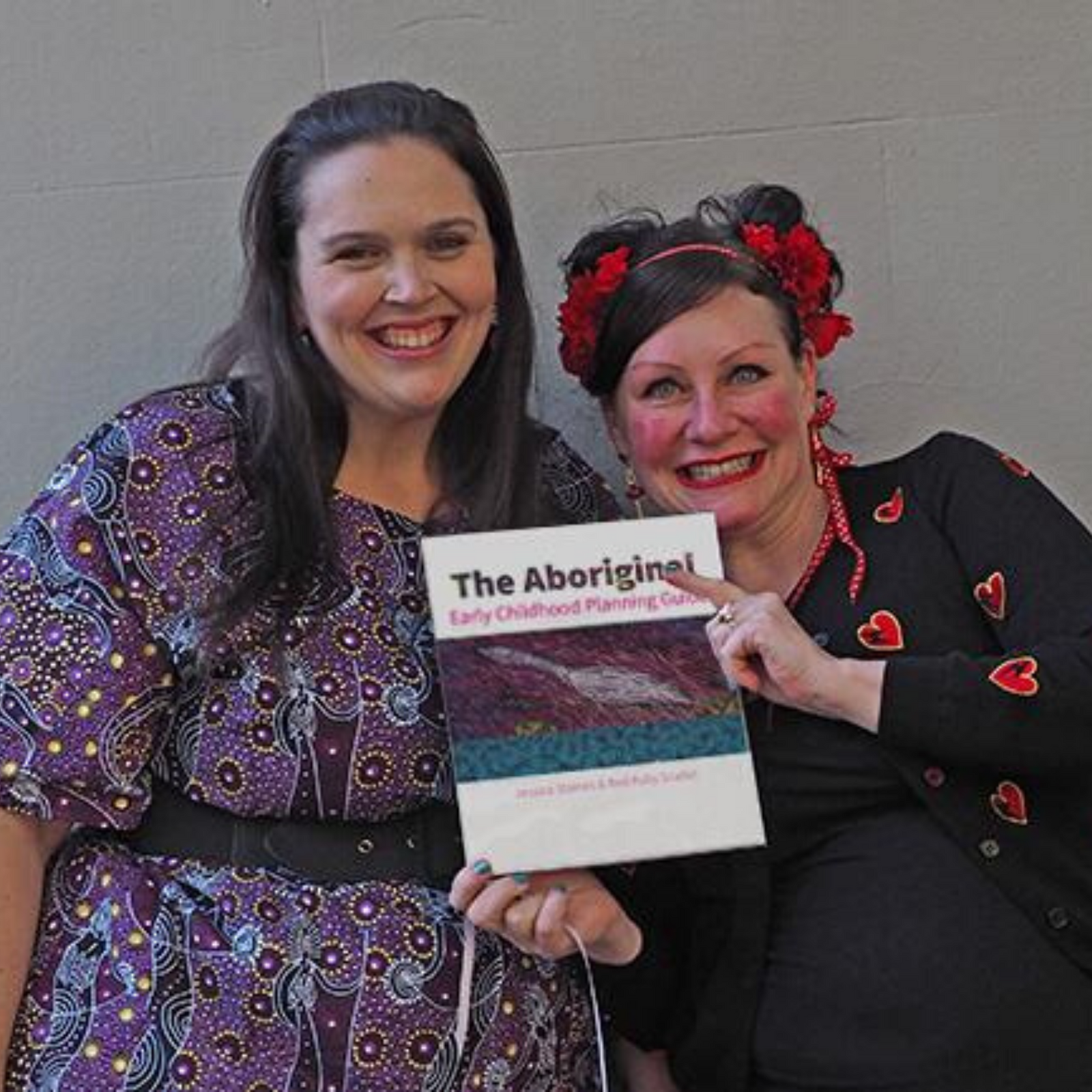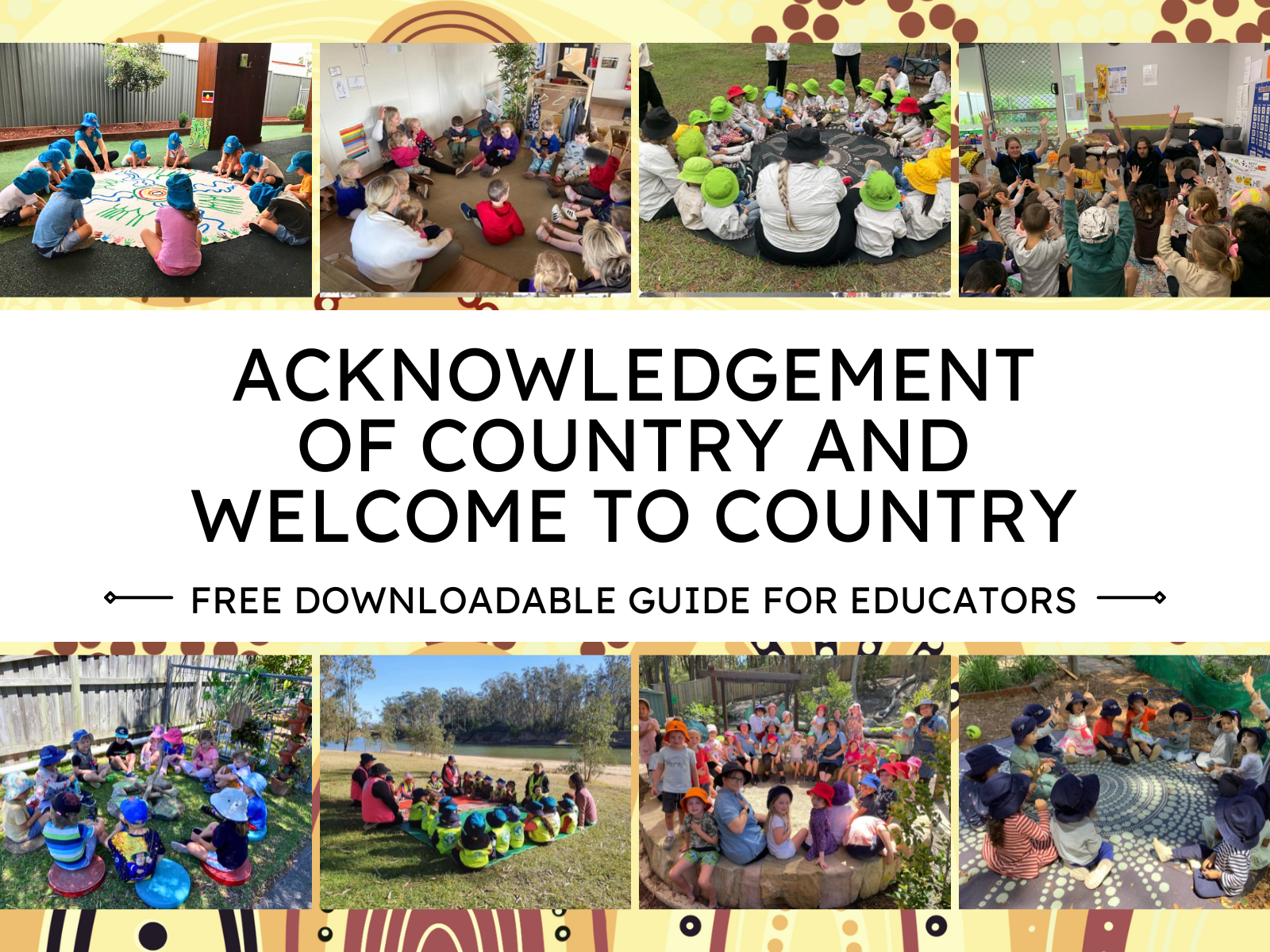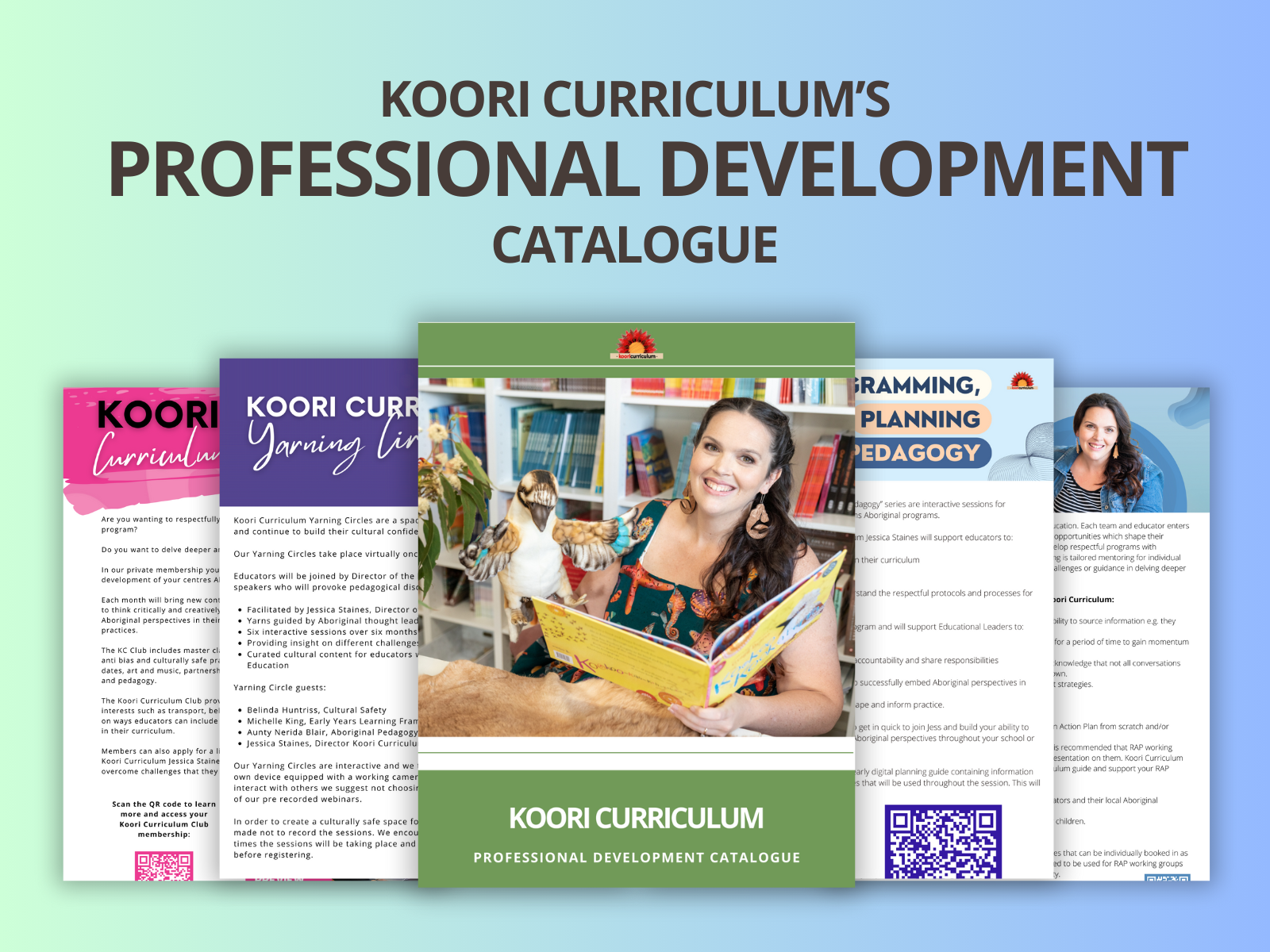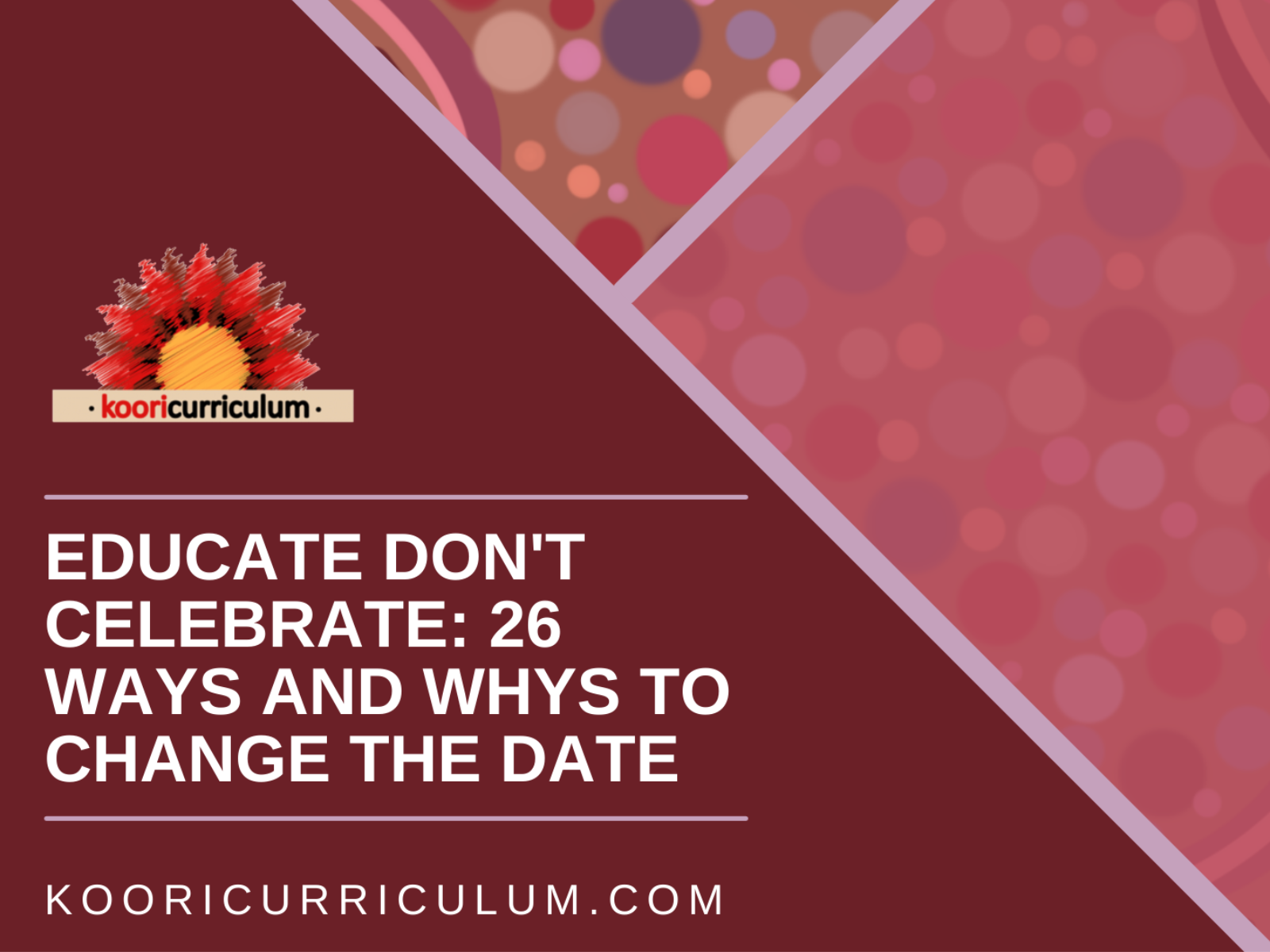
Planning Good Practice
For those of you who missed out on the planning day, or those of you who want to know more about The Aboriginal Early Childhood Planning Guide here is a little more information.
The Aboriginal Early Childhood Practice Guide edited by Dr Red Ruby Scarlet and myself in 2018 was my first book and was born from my involvement in the Global Leadership Program with the World Forum Foundation. Throughout the program young leaders were supported to engage in an advocacy project where we would create a resource that would bring about social change. For me I knew instantly what I wanted to do. Books are a vessel for knowledge and one which would allow me to reach more educators and broaden my sphere of influence.
I’ve always maintained a consistent view since starting the Koori Curriculum, which is that most educators want to include an Aboriginal perspective in their program and develop culturally safe environments for Aboriginal and Torres Strait Islander families and communities but don’t know what to do and how to do it. They are fearful of doing the wrong thing, offending someone or being stereotypical and tokenistic. One of my main goals and objectives when developing the Practice Guide was to debunk the myths surrounding Aboriginal perspectives in early childhood curricula and clarify what it is and what it isn’t.
Opening The Aboriginal Early Childhood Practice Guide are five over arching principles that dovetail the outcomes of the Early Years Learning Framework. It is important that educators don’t see Aboriginal perspectives as being tacked on and separate from everything else that they do, these principles are intended to speak and work with one another. Following are stories of practice from early childhood educators working in diverse contexts. These case studies affirm that the knowing is in the doing and also stress the importance of transferring, adapting and contextualising the principles into each community and early learning service.
The Aboriginal Early Childhood PLANNING Guide was released just short of two years later as an intended sister and companion to the professions beloved Practice Guide. The planner is a working book with QR coded videos ensconced throughout guiding the user on a self paced journey of reconciliation.
These two guides exist to work together. One lays the foundation whilst the other calls educators to action assisting them to create a customised action plan, calling them to delve deeper and critically reflect on why and how they privilege Aboriginal perspectives in their program.



